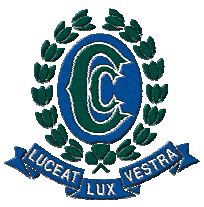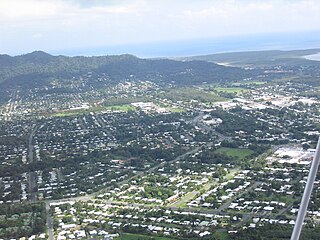Education in Queensland is the responsibility of the Department of Education. The Queensland school system is based around Queensland state schools, independent schools and catholic schools. [1] Schooling in Queensland begins with a preparatory year (Prep) followed by 12 years of study. Primary schools teach Prep through to Year 6, while high school or secondary school is from Year 7 to 12. Prep became compulsory in 2017, [2] and is a full-time program. [3]
Upon completion of 13 years of schooling, students receive a Queensland Certificate of Education and an Australian Tertiary Admission Rank used for tertiary education entrance. [4]
My School provides information about individual schools in Australia. Many schools are finding it difficult to fill teacher vacancies. [5] In recent year Queensland has seen an increase in home schooling enrolments. [5] The state has seven distance education schools. [6]
TAFE Queensland is the statutory authority parent body for TAFE technical and further education training in Queensland. Queensland has eight main universities and two satellite universities across a total of 31 campuses. [7]
The first school in Queensland opened in 1826. It provided education for the children of convicts from the first settlement in Moreton Bay. [8] In 1860 the Education Act was enacted. It placed all primary education under one general and comprehensive system controlled by the Board of General Education. [8] Under the Act, education in Queensland is free, secular and compulsory. [8]
Warwick East State School, established in September 1850, is the oldest surviving primary school in Queensland. [9] The oldest surviving secondary school in Queensland is Ipswich Grammar School. [10]

Education in Australia encompasses the sectors of early childhood education (preschool) and primary education, followed by secondary education, and finally tertiary education, which includes higher education and vocational education. Regulation and funding of education is primarily the responsibility of the States and territories; however, the Australian Government also plays a funding role.

Education in England is overseen by the Department for Education. Local government authorities are responsible for implementing policy for public education and state-funded schools at a local level. State-funded schools may be selective grammar schools or non-selective comprehensive schools. All state schools are subject to assessment and inspection by the government department Ofsted. England also has private schools and home education; legally, parents may choose to educate their children by any suitable means.

A state school, public school, or government school is a primary or secondary school that educates all students without charge. Such schools are funded in whole or in part by taxation and operated by the government of the state.

A comprehensive school is a secondary school for pupils aged 11–16 or 11–18, that does not select its intake on the basis of academic achievement or aptitude, in contrast to a selective school system where admission is restricted on the basis of selection criteria, usually academic performance. The term is commonly used in relation to England and Wales, where comprehensive schools were introduced as state schools on an experimental basis in the 1940s and became more widespread from 1965.
The South Australian Certificate of Education (SACE) is awarded to students who have successfully completed their senior secondary schooling in the state of South Australia.
The education system in Tasmania comprises the education of children from their early years, through kindergarten, primary and high school, and tertiary education in universities and vocational education and training organisations. The system is delivered by the government-run K–12 schooling system, and numerous independent schools and colleges, most of which are controlled or sponsored by religious organisations. Public education in Tasmania is managed primarily by the Department for Education, Children and Young People. The Department is responsible for all aspects of education in Tasmania including schooling, adult education, the State Library and TasTAFE, a vocational tertiary institution with many campuses around the state.

Ipswich Grammar School is an independent, non-denominational, day and boarding school for boys, located in Ipswich, a city situated on the Bremer River in South East Queensland, Australia. The school is sited on the eponymous Grammar School Hill, with its original buildings occupying the crown of the hill. Some of the Ipswich Grammar School Buildings are listed on the Queensland Heritage Register.
Educational stages are subdivisions of formal learning, typically covering early childhood education, primary education, secondary education and tertiary education. The United Nations Educational, Scientific and Cultural Organization (UNESCO) recognizes nine levels of education in its International Standard Classification of Education (ISCED) system. UNESCO's International Bureau of Education maintains a database of country-specific education systems and their stages. Some countries divide levels of study into grades or forms for school children in the same year.
Queensland state schools are government-funded primary schools throughout Queensland, Australia that provide universal free education from Prep to Year 6. Queensland state schools are funded by the Department of Education. In some rural communities, state schools can provide education up to year 10, roughly until students are 16 years old.

Clayfield College is an independent, Uniting Church and Presbyterian, day and boarding school, located in Clayfield, an inner-northern suburb of Brisbane, Queensland, Australia. The College is owned and governed by the Presbyterian and Methodist Schools Association.

Education in Western Australia consists of public and private schools in the state of Western Australia, including public and private universities and TAFE colleges. Public school education is supervised by the Department of Education, which forms part of the Government of Western Australia. The School Curriculum and Standards Authority is an independent statutory authority responsible for developing a curriculum and associated standards in all schools, and for ensuring standards of student achievement, and for the assessment and certification according to those standards.

Bellbird Park is a suburb in the City of Ipswich, Queensland, Australia. In the 2021 census, Bellbird Park had a population of 9,191 people.

Education in Victoria, Australia is supervised by the Department of Education and Training (DET), which is part of the State Government and whose role is to "provide policy and planning advice for the delivery of education". It acts as advisor to two state ministers, that for Education and for Children and Early Childhood Development.
Teaching in Victoria, Australia is regulated by the Victorian Institute of Teaching, through the Department of Education and Training (DET), which is part of the State Government. The DEECD is biggest operator of schools in the state, and along with the independent and Catholic school systems have an interest in teaching as the operator of schools and employer of teachers.

Education in Malta is compulsory through age sixteen and is offered through three different providers: the state, the church, and the private sector. The state is responsible for promoting education and instruction and ensuring universal access to education for all Maltese citizens the existence of a system of schools and institutions accessible to all Maltese citizens. The objectives of education in Malta include intellectual and moral development and the preparation of every citizen to contribute productively to the national economy. Although Maltese citizens had access to education during the Arab administration of 870 to 1090, the arrival of a number of religious orders in the following four centuries brought religious-based education to the island for wealthy families. The arrival of the Knights Hospitaller saw the establishment of the University of Malta, around which a number of primary, secondary and post-secondary institutions were established. Education in Malta has been universally available at the primary level since the ejection of the Knights Hospitaller by the French in 1798, when state-funded elementary schooling was established. In 1878, English replaced Italian as the primary language of instruction, and education was made compulsory in 1946 in response to a number of children not attending school due to poverty between World Wars One and Two. The age at which education became compulsory was lowered to five years in 1988
The Senior External Examination is an annually held Queensland examination, serving as a pathway to tertiary study for students who have been away from studies for a long period of time, who left school before attaining their Queensland Certificate of Education (QCE) or had performed poor in their studies and need to improve their selection rank for university. In addition, high-school students can follow the examination to partake in subjects not offered by their schools, but they will usually have to find private tuition. Senior External Examination is recognized by the Queensland Studies Authority (QSA) and the Queensland Tertiary Admissions Centre (QTAC) who together govern high-school subjects and tertiary admission for Queensland.

East Toowoomba is a residential locality in Toowoomba in the Toowoomba Region, Queensland, Australia. In the 2016 census, East Toowoomba had a population of 5,244 people.

Manunda is a suburb of Cairns in the Cairns Region, Queensland, Australia. In the 2016 census, Manunda had a population of 5,390 people.

The history of state education in Queensland commences with the Moreton Bay penal settlement of New South Wales in Australia, which became the responsibility of the Queensland Government after the Separation of Queensland from New South Wales in 1859.
Woodcrest State College is a co-educational public Prep to Year 12 school located in the City of Ipswich suburb of Springfield in Queensland, Australia. The school has a total enrolment of 1,719 students in 2022.
{{cite web}}: Missing or empty |url= (help)